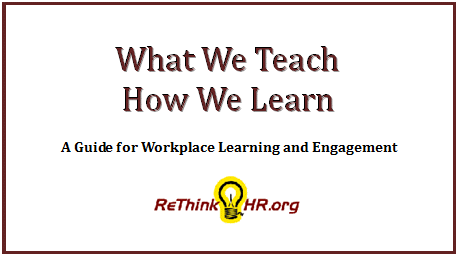(The following is a guest post from Kristi Daeda)
One of HR’s many hats is liaison. Between the company and the employees. Between the hiring manager and job candidates. The challenge is that each group has their own expectations. If you’re an HR pro with recruiting responsibilities, you’re charged with using the highest level of problem solving and tact to keep everyone happy. Here’s some ideas to help you walk the thin line of HR diplomacy.
Issue: How HR should respond to each job candidate that applies
The candidate says: You can’t just pretend you didn’t get my resume. I’d like an email thanking me, and providing next steps. Maybe a nice phone call.
The company says: Your priority is finding top notch talent. Everything else must go by the wayside.
Your best line: Try to add personal touches to the automation in your process. Warm, personal-looking email automatic email responses at least help people see that their info has landed, and take little time to set up. Leave personal responses for high-value contacts, like executives and top performers that might be good organizational fits in the future.
Issue: How much you should tell a job candidate about their prospects within the organization
The candidate’s view: Tell me everything. Now. Who else are you interviewing? How many? How do I rank? What am I not saying that I should be? What’s the magic bullet?
The company’s view: Tell them nothing! Any slip might lead to a lawsuit. Oh, you say we can’t just leave people in the dark? That they’ll lose interest and we won’t be able to hire them? Okay. But be vague. No, we don’t yet have a timeline for next steps. You know this hiring stuff isn’t my top priority, right?
Your best line: When you have a good candidate, keep them apprised of progress. Be honest if you don’t know the timeline. Give them context as to why (busy season, need to finish budgeting, etc.). Return phone calls and emails within one business day. Real businesspeople understand how hiring fits into the larger picture.
Issue: How honest you should be about the organization’s expectations and culture
The candidate’s view: If the last three people who had the job quit in less than six months, please tell me. Please help me to know whether I should put my entire career in your hands.
The company’s view: You’re an agent of the company. Please share your obvious overload of rainbows and sunshine about the organization with others.
Your best line: If your goals are set against successful candidates — those that stick around for a while and perform well in the organization — then you may need to bring a little transparency to the process. If a candidate knows nothing about the challenges of the role, you have no idea if they’re absolute can’t-get-my-hiney-out-of-this-ergonomic-chair-fast-enough deal-breakers. Do you really want to find that out post hire?
Bottom line: Find the sweet spot at the intersection of what everyone wants from you — it’s probably the closest you’ll get to “best for everyone.”
Kristi Daeda is a career coach, blogger and personal marketing strategist helping professionals nationwide create their own career opportunities. She is the founder of LaunchSummit, a free web-based educational event for job seekers, and blogs on job search, management, leadership, networking and more at Career Adventure.
You may also like the following:
Comments
Powered by Facebook Comments


